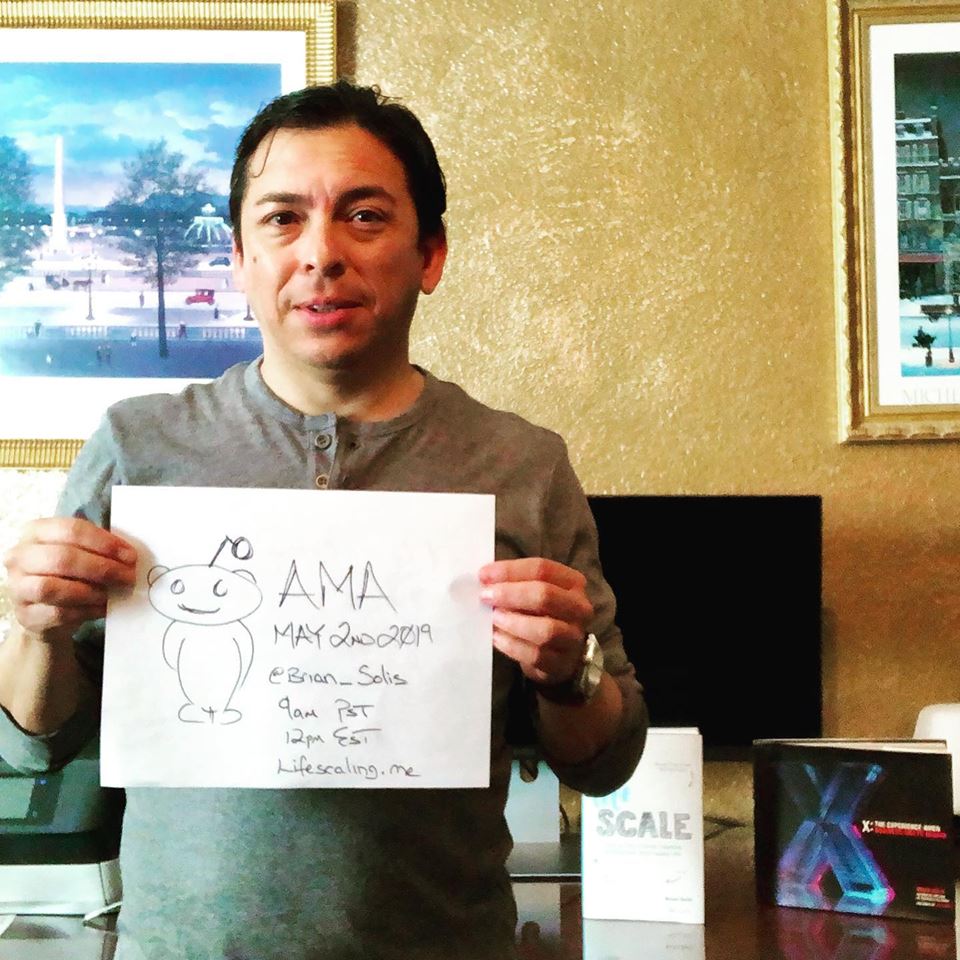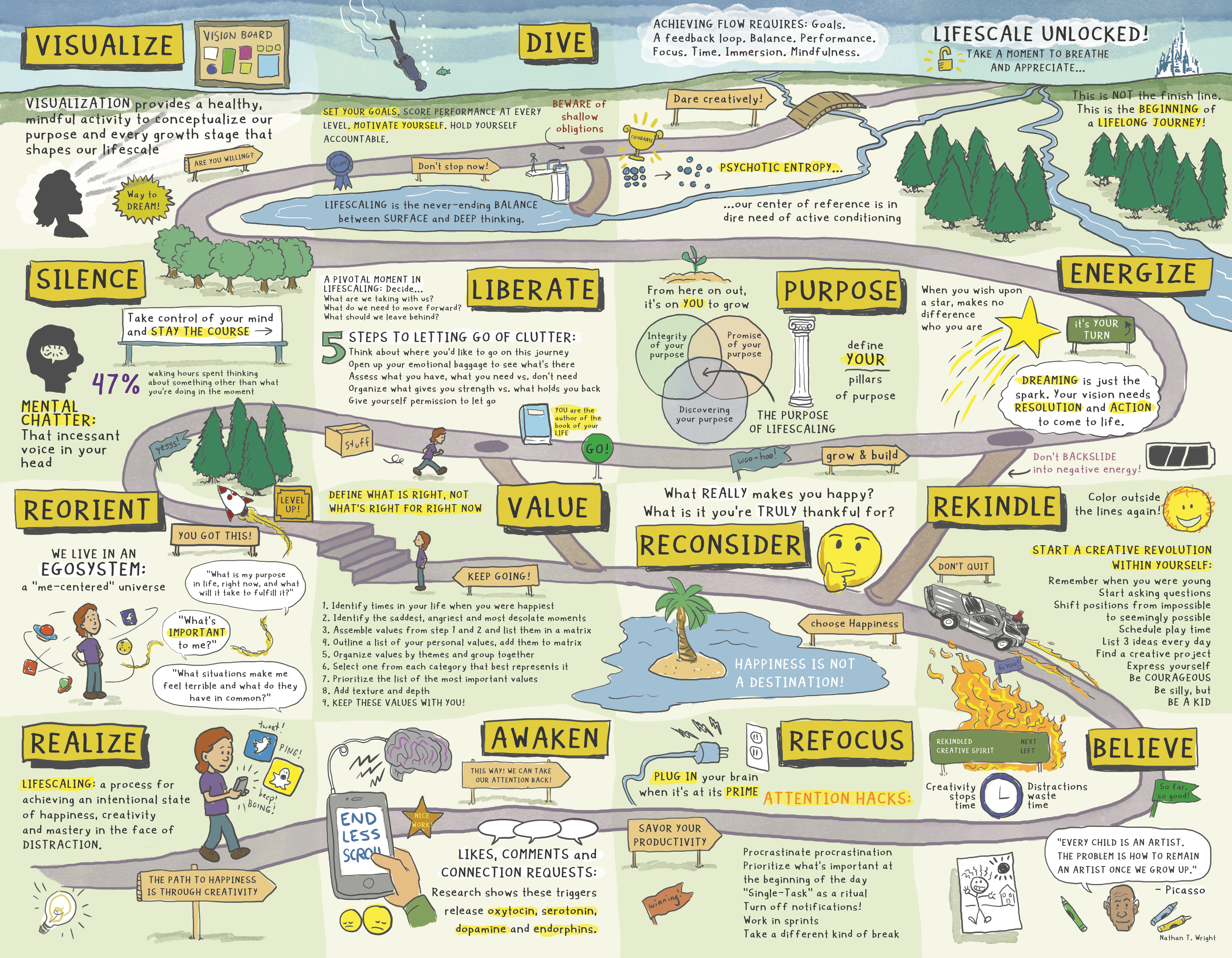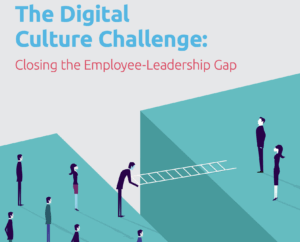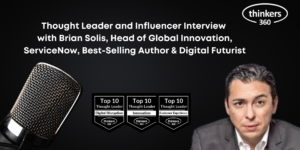
It’s been years since I last hosted an AMA (Ask Me Anything) on Reddit. With the release of Lifescale: How to Live a More Creative, Productive and Happy Life, it was time to change that. On May 2nd 2019, I took to Reddit once again for the first in a two-part series. The first part is here if you’d like to ask your question on the official AMA page. I also included the conversation as of May 5th to share with you as the questions were so authentic and relatable.

Hello! I’m the author of Lifescale, a new book that tackles the effects of social media on us. I learned that we didn’t lose focus or creativity, it was programmed out of us. I found help! AMA!
Question: What’s your easiest tip to avoid digital distraction/procrastination that I can implement RIGHT NOW?
Answer: Pomodoro Technique. Practice focusing for 25 minutes on one task while closing all distractions. Keep a tap to track how many times you fail…because you will. But keep trying. You’ll get it. And it’s amazing what you can do and also how you’ll feel as you grow. There are a lot of productivity hacks out there. 🙂
-> Thank you! Definitely heard of this one. But have been resistant to implement, probably because of failure. But I like that you’re suggesting to confront the failure.
–> Failure is the only way…I learned that over the last two years documenting a path forward.Remember, none of this stuff came with a manual. I learned that I was failing IRL because of tech’s effects on me. So you can only learn and grow!
Q: What do you think the best uses of social media are? How can social media be transformed to become additive to society rather than destructive, as it is commonly considered today?
A: I think this is such a great a question. The irony for me is that I had to jump back into the fire. It’s intentional. But it’s also much different once you learn about what’s happening behind the scenes. You can’t help but feel and act differently. I use tech more mindfully with the intention of adding value. BTW, here’s a quote from a startup founder building next gen social media apps. It’s mind-blowing…“We use AI and neuroscience to increase your usage…make apps more persuasive…it’s not an accident. It’s a conscious design decision. We’re designing minds. The biggest tech companies in the world are always trying to figure out how to juice people.”
Q: What effects of social do you think should be more known? Does it make a big difference to the youth? And what is your favorite type pizza?
A: It absolutely effects our youth…all of us really. Our brains are rewired, we flood our bodies with different chemicals based on usage. Our bodies crave those chemicals. How they/we talk, learn, connect, interact and most importantly how we think and feel are all disrupted against previous norms and standards. So, we have to rethink education, training, nurturing, etc., based on their digital-first brain against all analog-first operating models. My favorite is a thin crust, Sicilian style wood fired pizza! Yours?
-> So overall would you say the change is good, bad or somewhere in the middle? ( if in the middle would the pros outweigh the cons? ) Oh that sounds good! I love the wood fired pizza I took my girlfriend to get some yesterday.
–> It’s user defined. Right now, it’s not good because we’re operating under the assumption that “everything’s fine.” Once we learn of its effects, we have the ability to use it more mindfully and productively. We have to take control!
Q: Do you feel like the abundant and constant feed of posts is reducing our attention span and our ability to retain information?
A: Yes! We’re being wired to be distracted. It’s part of what’s called “persuasive design.” Attention is a currency and the more of it they have, the more they can sell. When we use our favorite apps, we’re learning how to accelerate our minds and bodies. We’re learning to multi-task, and neurochemical switches are activating to help us jump around. But, we’re not doing things as well or as deep or as creative as we think!
-> Could you give me an example of an industry where this frequent activation of neurochemical switches is beneficial?
–> Any application where high level focus across multiple fronts in the moment is necessary. But this too, takes practice, talent and “flow.” So, ironically, you do need focus to get where you need to be.
Q: This is really scary. What’s the best way to break out of this. How do we access that deep thinking and creativity that we buried?
A: It is, but it can also be incredibly awakening and productive. I had to write a whole book about my journey to find answers and learn how to take control. The usual solutions, i.e. turning off, unplugging, deleting apps/accounts, turning off notifications, meditating, being mindful, using productivity apps, etc., don’t get me wrong, are helpful in their own way. But they’re not the answers to your question. They treat the symptoms. We have to train ourselves again to make room for and learn to stoke and manage deep thinking and creativity. It starts small and we get stronger from there. I detail it in the Lifescale journey.

Q: What would you most like to tell us that no one ever asks about?
A: What a thoughtful question. Thank you. I would love to share that I feel that even though this is my 8th book, it’s like my first. It’s as if I’m starting all over again because I haven’t spent my entire career as an author or speaker building a community around this as a topic. So, I’m approaching this, not as an expert, but instead a human being who lost his way and used the process of creating this book to get back on track. I’m way out of my comfort zone and hoping to build a community of support for one another…and find a new place for me to add value to the world.
Q: Here’s an interesting problem for you. I don’t believe in these “productivity hacks”, mainly because I don’t use social media that much, but I am distracted and less productive that I rationally should be (the reason for that may lie not only in digital distractions, but general stress levels and things in life). The main reason I don’t believe in them is that in previous centuries people have ended up spending their lives perhaps not in the most ‘productive’ ways according to the modern interpretation of the word, yet they were able to create great things (arguably, greater than what we have now, in some fields). Would you be able to provide links to any articles with arguments/examples that would convince me that I have a problem that can be solved by ‘productivity techniques’? That would convince me to even try?
A: Let me start by adding context to “productivity hacks.” I was distracted, consciously and subconsciously. It got worse over time. Eventually, I had to rebuild the skills and behaviors (and rewire my brain) to focus for longer and longer bursts to dig my way out of where I was to eventually take steps in the right direction. The “hack” simply referred to forcibly interrupting my bad habits to start to gain strength in a new direction. I couldn’t take bigger strides until I knew what was actually happening to me and why. So the hacks helped me force step in productive directions. With that said, I’m not sure that productivity techniques are what you or any of us need in the long run. It’s really what I needed to break free from distractions enough to learn and unlearn to take the next step. But there were human reasons why I was here in the first place. I learned, distractions are largely welcome because they can temporarily save us from contending with the challenge of difficult tasks, emotions, or situations…loneliness, fear, self-doubt, unhappiness, self-loathing, insecurity, et al. No productivity techniques would solve that. At the same time, procrastination is a subconscious attempt to avoid unpleasant tasks we’re meant to be doing. Solving the problem is not about time management. You can do a good job of that with a to do list, calendar app/s. The key is to understand the root cause/s and change how you perceive the pain tied to a task, state or place. There can be pleasure and happiness in the outcome or goal and everything can become a means to get to that future state. If you can’t visualize it, you can’t achieve it. If you can’t appreciate it, you can’t learn to build upon those learnings or experiences to celebrate accomplishments and progress. Sometimes we are our own thieves of happiness. We rob ourselves of the little moments that are actually transports of contentment an meaning now in over time.
-> Thank you for taking the time to reply. It was illuminating and is probably something I should seriously look into.
–> You’re welcome!
Q: How long did you think it would take to write the book when you started and how long did it actually take?
A: What a great question. I used to write a book over the course of three months and every 1-1.5 years. This time around, it took me a year to write a proposal for a book I set out to write and couldn’t get past until I realized I had a problem. Once I started to repair my life and work, which took another year, I was able to write more openly, creatively and purposefully…within 4-5 months at a whole other level.
-> Good to know I’m not the only one. I’m in a similar situation heading toward the latter end of the task. I cannot believe how paralyzing it is to just be stuck and scribble aimlessly for several months. For me this is my absolute first work, so I’m relieved it’s not like I’m the slow guy running the school marathon. I originally gave myself one year to get it done and it just barely now feels like I’m starting even though I have hundreds of pages of content.
–> We are all in this together. I found a higher purpose to attach my transformation to and it’s still working! 🙂 I wish you the best.
Q: You mentioned education needs to change to be “digital-first brain”. I teach high school English. What would that look like? I feel as though I am fighting a losing battle against YouTube and the latest social game and I’m one of the teachers who encourages them to use their phones to research information.
A: Thank you for asking and also thank you for being a teacher. I use similar persuasive design and UX/UI techniques on paper. A lot of this has to do with rethinking how they read/learn based on experiences that mimic their everyday applications. There also needs to be a different reward system put in place. Another thing I experiment with is teaching basic focus and regimen to reinforce behaviors toward desired outcomes. It’s sort of gaming the process in ways that are not unlike how they’re gamed into the behaviors and routines they follow today. Let me see what I can pull together for you. This is an area of passion for me. We’re looking at creating “lifescale for classroom materials.”
Q: What would you say is the most addictive social media and what does it do to create that addiction to it?
A: There are so many answers to this. 1) is the persuasive design techniques used to hook you and change your behavior. 2) there are design techniques that go further, such as intermittent variable rewards that essentially juice you to encourage usage, more sharing, more consumption and more engagement. Attention is after all, the commodity that these platforms sell against, with most having shareholder pressure for returns. 3) the psychological and chemical reaction to all of the above mimic the evolving states of our brains and bodies to grow dependent on these stimulants. We do more of the things that feed it. It’s insatiable. To learn more, please take a moment to read more about Tristan Harris’ work.
Q: Do you think social media has revealed real life heroes that may have otherwise gone unnoticed? For example, I put a picture of the twin towers in my Facebook even though doing so offended some people. I realized I could be oppressed but I did it anyway. Sometimes you have to stand up for what’s right.
A: While there are downsides to it, there are also many benefits as well. I believe that to truly appreciate the upsides and the beauty within starts with understanding where the lines are and more importantly, the effects on all sides. From there, it can become a powerful, productive, positive and celebrated experience for you and those connected to you. I had to start somewhere. I use tech now, intentionally and mindfully to deliver and receive value.
https://twitter.com/alexisohanian/status/1124119725548625920
Brian Solis
Brian Solis is principal analyst and futurist at Altimeter, the digital analyst group at Prophet, Brian is a world renowned keynote speakerand 8x best-selling author. In his new book, Lifescale: How to live a more creative, productive and happy life, Brian tackles the struggles of living in a world rife with constant digital distractions. His model for “Lifescaling” helps readers overcome the unforeseen consequences of living a digital life to break away from diversions, focus on what’s important, spark newfound creativity and unlock new possibilities. His previous book, X: The Experience When Business Meets Design, explores the future of brand and customer engagement through experience design.
Please, invite him to speak at your event or bring him in to inspire colleagues and fellow executives/boards.
Follow Brian Solis!
Twitter: @briansolis
Facebook: TheBrianSolis
LinkedIn: BrianSolis
Instagram: BrianSolis
Pinterest: BrianSolis
Youtube: BrianSolisTV
Newsletter: Please Subscribe
Speaking Inquiries: Contact Him Directly Here
____________________________
Follow Lifescale!
Main Newsletter: Please Subscribe
Coaches Newsletter: Please Subscribe
Twitter: @LifescaleU
Instagram: @LifescaleU
Facebook: Lifescale University





Leave a Reply